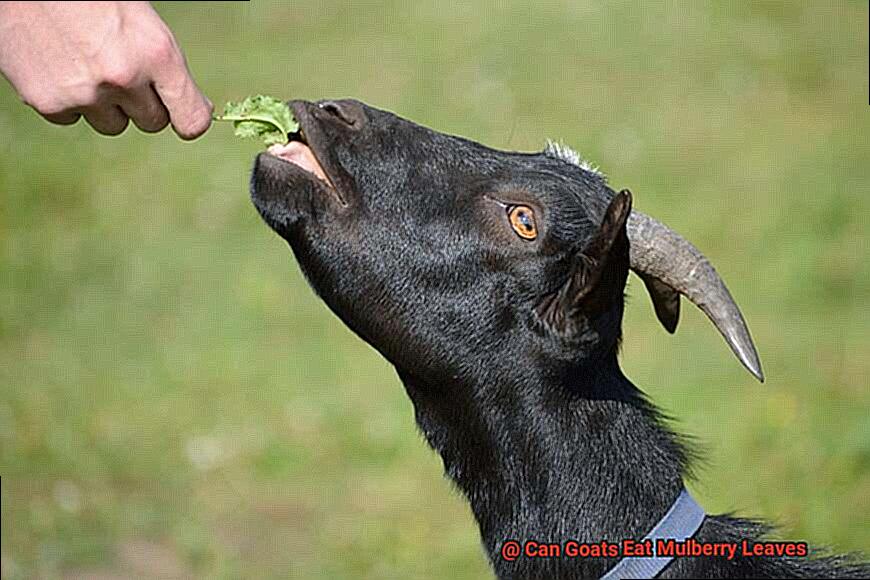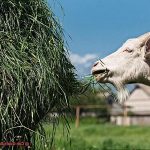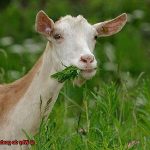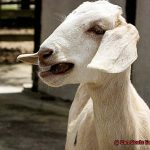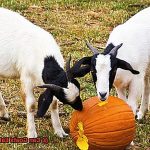If you’re a goat owner, you know that these curious creatures will eat just about anything green and leafy.
And if you happen to have a mulberry tree on your property, you may be wondering whether your goats can safely munch on the leaves. After all, mulberries are a sweet and delicious fruit that many humans love to snack on.
But can goats partake in this tasty treat as well? In this article, we’ll answer the question of whether goats can eat mulberry leaves – and provide plenty of other useful information along the way.
As it turns out, mulberry leaves are not only tasty but also packed with essential nutrients that can benefit both humans and animals. However, not all plants are safe for goats to eat, so it’s always important to research and understand what your goats can and cannot consume.
As a responsible goat owner, you want to make sure that your animals are getting a healthy and nutritious diet. That’s why we’ll not only address whether goats can eat mulberry leaves but also delve into the nutritional benefits of mulberry leaves for goats.
We’ll also explore how to incorporate these leaves into your goat’s diet safely – as well as any risks or precautions you need to be aware of. So whether you’ve got a mulberry tree on your property or simply want to learn more about goats’ dietary needs, keep reading.
In this article, you’ll have everything you need to know about goats and mulberry leaves.
Nutritional Benefits of Mulberry Leaves for Goats
Contents
Ensuring that your goats are healthy and thriving is always a top priority.
A great way to achieve this is by incorporating mulberry leaves into their diet. Not only are mulberry leaves packed with essential vitamins and minerals, but they also provide protein, fiber, and antioxidants.
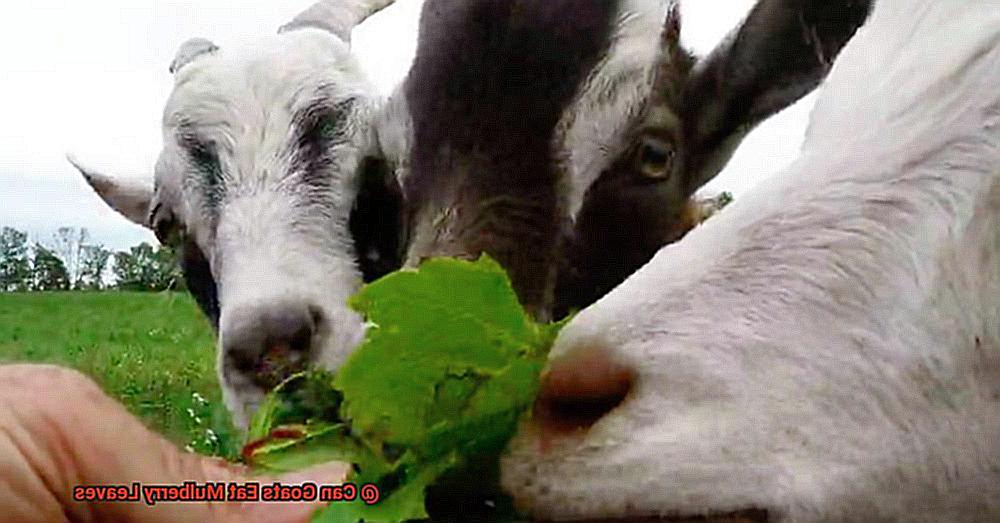
Goats require protein to develop muscle and repair tissues. Mulberry leaves contain up to 20% protein content, making them an excellent source of protein.
This makes them an ideal supplement to add to your goat’s diet during periods of growth or pregnancy. Fiber is also vital for goats’ digestive health.
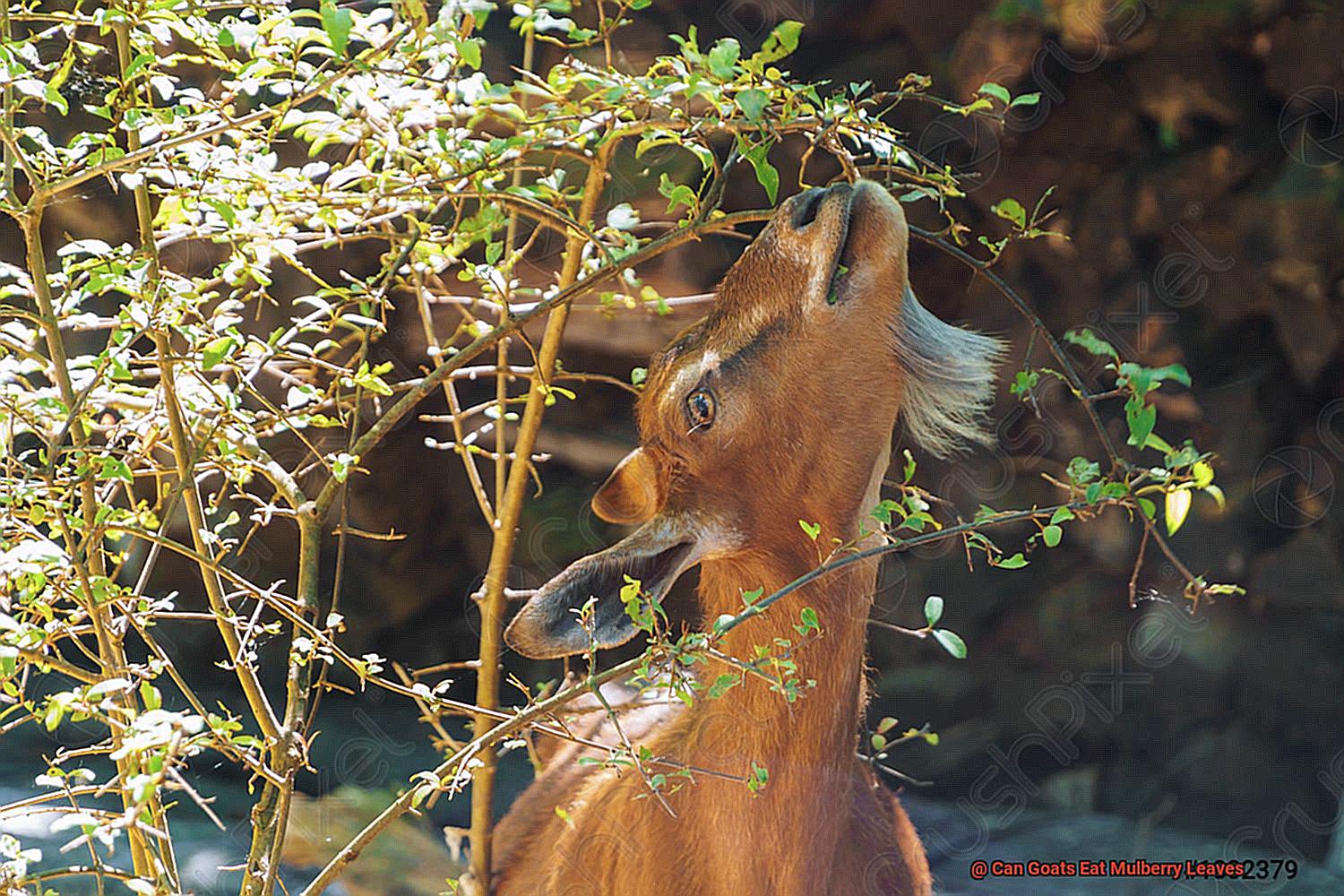
It helps to keep their digestive system functioning properly and prevent issues such as bloat. Mulberry leaves are high in fiber, which can help maintain your goats’ health and prevent digestive problems.
Antioxidants are crucial for goats’ immune systems as they protect against free radicals that can harm cells and lead to disease. Flavonoids and phenolic acids found in mulberry leaves are potent antioxidants that can boost your goat’s immune system and keep them healthy.
Calcium, magnesium, potassium, and phosphorus are all critical minerals for your goats’ overall health. These minerals play a role in everything from bone health to muscle function.
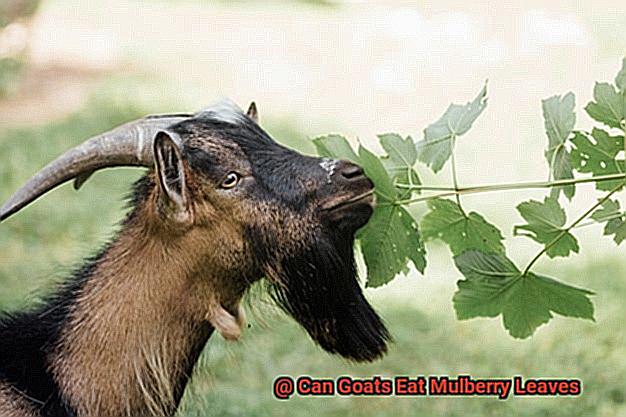
Mulberry leaves are an excellent source of these minerals, making them an essential part of a balanced goat diet. It is important to note that not all types of mulberry leaves are safe for goats as some may contain alkaloids that can be toxic if consumed in large quantities.
Therefore, it’s crucial to ensure that the mulberry leaves being fed to your goats are from a safe variety. In conclusion, mulberry leaves offer numerous nutritional benefits for your goats.
They provide essential vitamins and minerals, protein, fiber, and antioxidants. As with any new food being introduced into a goat’s diet, it is always best to consult with a veterinarian or experienced goat breeder for guidance.
Different Varieties of Mulberry Trees and Their Suitability for Goats
With different varieties to choose from, each with its unique characteristics, you can find the perfect fit for your beloved goats. One variety that goats go gaga for is the black mulberry tree.
They love munching on its leaves, which are packed with nutrition. Another variety that goats find delicious and nutritious is the white mulberry tree.
Its leaves and berries are rich in nutrients, but you must be careful as some white mulberry trees produce toxic fruit that can be harmful to your goats. Red mulberry trees are another option that provides a good source of nutrition and a favorite snack for your goats.
However, they’re not as common as black and white mulberry trees, so they may be harder to come by. It’s essential to identify the specific variety of mulberry tree you have on your property and ensure that it’s safe for your goats to consume.
Overfeeding them with mulberry leaves can cause digestive issues like bloating and diarrhea. Adding mulberry leaves to your goats’ diet can provide them with essential vitamins, minerals, protein, fiber, and antioxidants that boost their immune system, digestive health, muscle development, and overall well-being.
It’s no wonder why mulberry leaves are hailed as superhero serum. In conclusion, different varieties of mulberry trees offer various benefits to your goats.
How to Safely Introduce Mulberry Leaves into a Goat’s Diet
Gradual Introduction
Introducing new foods to your goat’s diet can be exciting, but it’s important to take things slow and steady. When it comes to mulberry leaves, it’s best to start with small amounts and gradually increase over time. This allows your goat’s digestive system to adjust and reduces the risk of digestive problems. Think of it as a slow dance between your goat’s stomach and the new food.
Clean and Safe Leaves
Cleanliness is key when it comes to introducing mulberry leaves into your goat’s diet. Pesticides and chemicals can harm your goat’s health, so make sure the mulberry leaves are clean and free from any contaminants. The best option is to pick fresh leaves directly from a mulberry tree or obtain them from a trusted source that guarantees their quality. Your goat will thank you for providing them with safe and healthy food.
Balanced Diet
While mulberry leaves can provide additional nutrition and variety, they should not be the only thing on the menu. Goats need access to other types of forage and a balanced diet that meets their nutritional needs. A little bit of mulberry leaves can go a long way when paired with hay or other forages. Think of it as adding some flavor to your goat’s diet.
Monitor Closely
Like any new relationship, introducing mulberry leaves into your goat’s diet requires close attention. Monitor your goats closely for any signs of digestive problems or health issues such as diarrhea or bloating. If any issues arise, reduce or eliminate the amount of mulberry leaves in their diet and seek veterinary advice if necessary. Remember, prevention is better than cure.
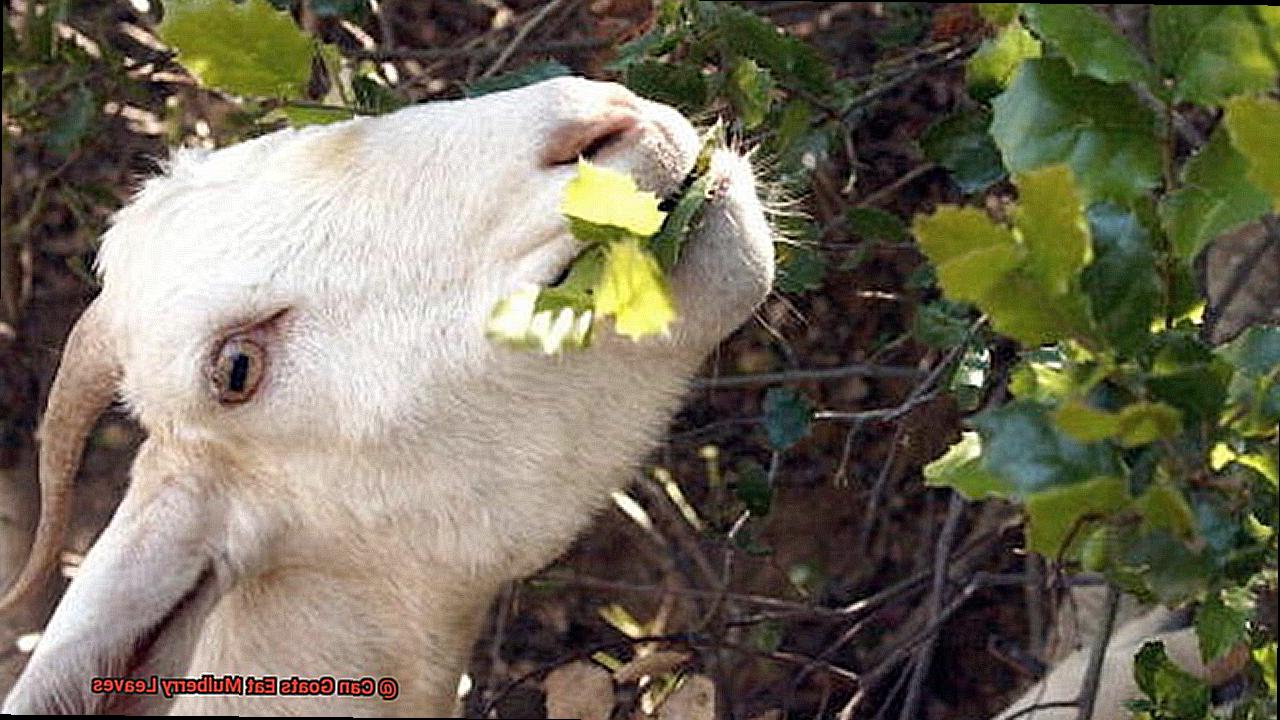
Consult with Veterinarian
When it comes to your goat’s health, it’s always best to seek professional advice. Consult with a veterinarian or experienced goat breeder for guidance on how to safely introduce mulberry leaves into your goat’s diet.
They can provide valuable insight into your goat’s specific needs and help you create a diet plan that works best for them. Remember, a healthy goat is a happy goat.
So, introducing mulberry leaves into your goat’s diet can be done safely and effectively by following these guidelines.
Potential Risks and Side Effects of Eating Mulberry Leaves
While generally considered safe in moderation, there are some potential risks and side effects to be aware of.
One major concern is the possibility of toxicity from the plant’s alkaloids. Although mulberry leaves contain low levels of alkaloids, excessive consumption can lead to vomiting, diarrhea, and neurological issues.
It’s crucial to monitor your goat’s intake and ensure they don’t overeat or have a sensitivity to these compounds. Another potential issue is the laxative effect of mulberry leaves.
While this can benefit goats with digestive issues, it can also cause dehydration and electrolyte imbalances without adequate water intake. So make sure your goat has access to fresh water when feeding them mulberry leaves.
Additionally, goats that consume large amounts of mulberry leaves may lose their appetite for other foods, leading to nutritional deficiencies if not properly monitored. Keep an eye on their overall diet and make sure they’re getting all the nutrients they need.

To avoid any negative effects, introduce mulberry leaves slowly and in small quantities.
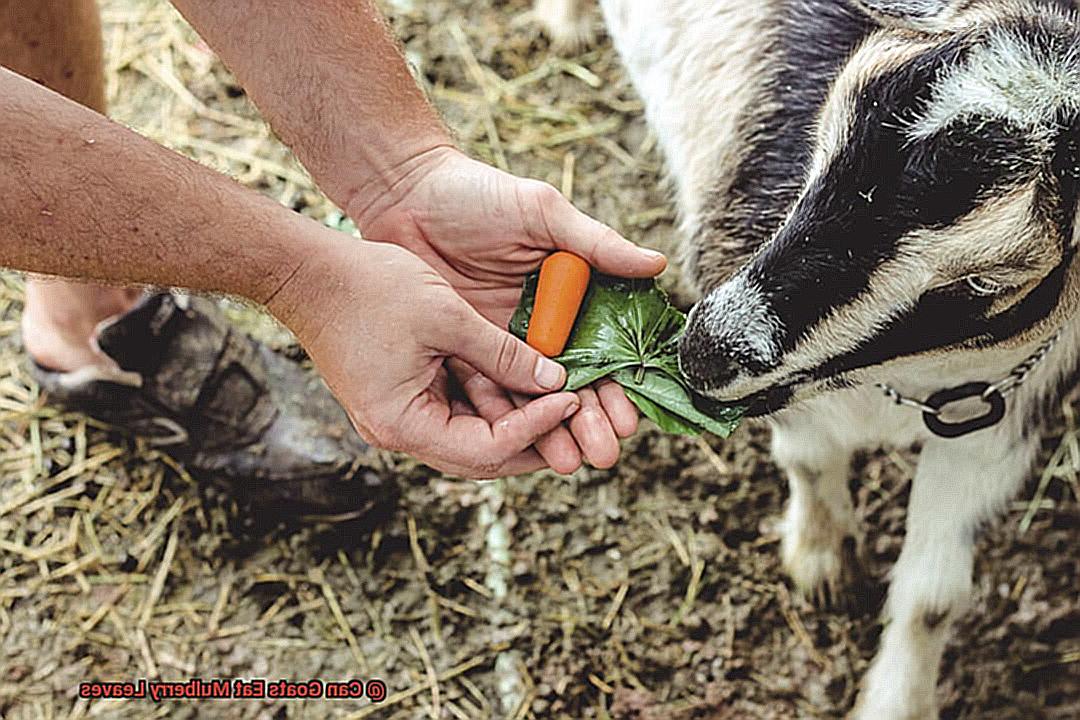
Observe how your goat responds and discontinue feeding the leaves if any negative symptoms occur.
And as always, consult with a veterinarian if you have any concerns.
Tips for Feeding Goats Mulberry Leaves
Mulberry Leaves
You want nothing but the best for your furry friends. One nutritious and tasty addition to their diet that you may consider is mulberry leaves. However, before you start feeding them to your goats, it’s important to keep in mind some tips to ensure they remain healthy and happy.
Start Slowly
As with any new food, it’s essential to introduce mulberry leaves gradually to avoid any digestive issues. Begin by offering your goats a few leaves and gradually increase the amount over time.
Choose Fresh Leaves
To provide maximum nutritional value, make sure to offer only fresh and young mulberry leaves. Avoid wilted or dried leaves as these may be less nutritious and even harmful to your goats.
Offer in Moderation
While mulberry leaves are high in protein and other essential nutrients, it’s still important to offer them in moderation. Too much of any one food can lead to digestive issues such as bloating or diarrhea. Offer mulberry leaves as a treat rather than a staple food.
Consider the Season
Mulberry trees produce leaves at different times of the year depending on the climate and location. If you have access to fresh mulberry leaves, consider the season and only offer them when they’re available.
Monitor Your Goats
As with any new food, it’s crucial to monitor your goats’ intake of mulberry leaves closely. Observe their behavior and adjust accordingly. If you notice any signs of digestive upset or health issues, stop feeding them mulberry leaves and consult with a veterinarian.
Adding mulberry leaves to your goats’ diet can provide them with a variety of health benefits, including improved digestion and increased immunity. However, it’s important to remember that they should not be the sole source of their diet. A balanced diet that includes hay, grains, and other forages is necessary for their overall health and wellbeing.
4X5LJEhfejo” >
Conclusion
In conclusion, goats can indeed munch on mulberry leaves without any adverse effects.
These leaves are a treasure trove of essential nutrients such as vitamins, minerals, fiber, and antioxidants that can boost the immune system, aid digestion, promote muscle development, and generally improve the well-being of your goats. However, not all mulberry leaves are created equal – some may contain alkaloids that can be toxic if consumed in large quantities.
Therefore, it’s vital to identify the specific type of mulberry tree on your property and ensure its safety for goat consumption. When introducing mulberry leaves into your goat’s diet, it’s best to do so gradually and in moderation while closely monitoring their intake.
As a responsible goat owner or breeder, seeking guidance from a veterinarian or experienced goat breeder on how to safely introduce mulberry leaves into your goat’s diet is always recommended.

